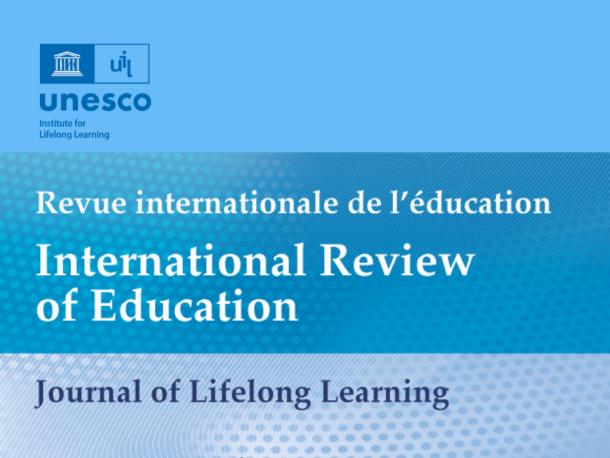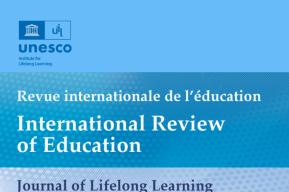News
New issue of IRE: ‘The future is not what it used to be’

The articles in the latest issue of the International Review of Education – Journal of Lifelong Learning demonstrate the public value of education and its wide, cross-sectoral benefits, exploring its challenges and possibilities, notably for those groups typically excluded or marginalised, while taking in an exceptionally wide range of thematic and geographical areas.
The topics covered in the 10 contributions to this double general issue include the important relationship between literacy and citizenship (drawing on ethnographic studies of literacy in everyday life); the positive effect of translanguaging on learning outcomes in a multilingual South African science classroom; distance learning (challenges for students in Ghana, and for teaching staff in the United Arab Emirates); professional development for teachers in French- and English-medium public elementary schools in Quebec, Canada; the potential of Indigenous philosophies of education in Ghana; a pedagogy of freedom as a viable basis for implementing gender equality in Ukraine’s educational institutions; challenges and opportunities for entering and staying in apprenticeships (in the London Borough of Hounslow before and during the COVID-19 pandemic); women entrepreneurs learning from failure (North Korean refugees in the Republic of Korea); and how to improve refugee children’s access to education and quality learning (a literature review).
The editor’s introduction reflects on what remains to be done in key areas of policy in education and lifelong learning in order to meet the goals set for the international community by the 2030 Agenda for Sustainable Development, now at its halfway point. Noting the scale of the unmet educational needs of excluded, disadvantaged and discriminated-against groups, and the vital intersectoral role played by education in the achievement of all 17 goals, he argues that hope for the achievement of the sort of ‘sustainable and inclusive’ transformation in education the UN Secretary General has called for rests on ‘people wanting a radically different future and … being persuaded that it is possible’.









